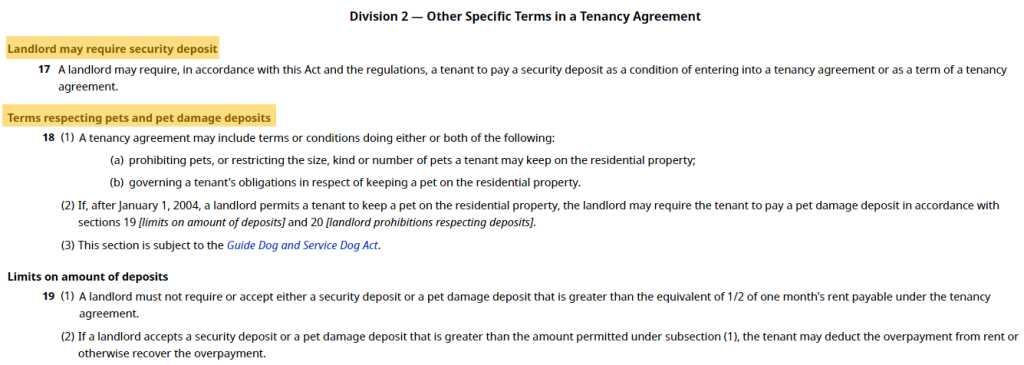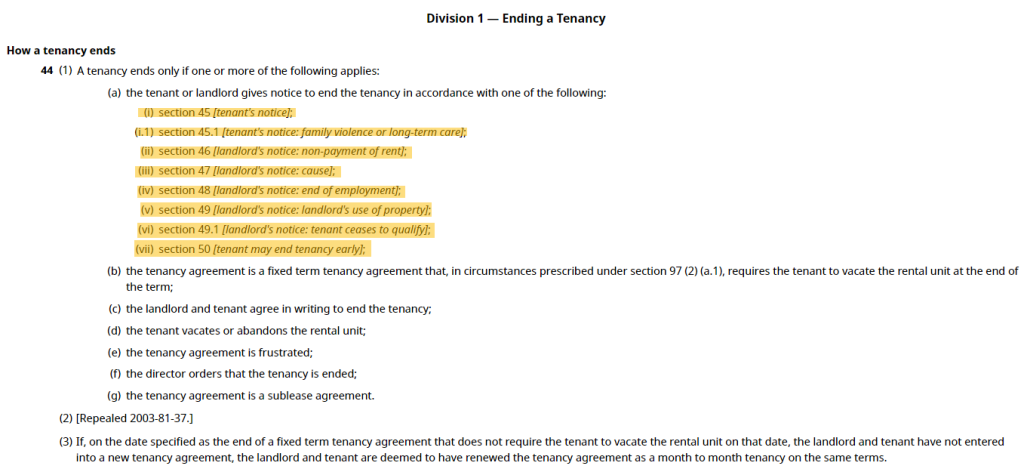Here is a comprehensive guide to rental laws and regulations in Vancouver, detailing the specific laws and tenant rights, landlord responsibilities, and legal obligations for both parties:
Rental Laws and Regulations in Vancouver
The primary law governing rental housing in British Columbia, including Vancouver, is the Residential Tenancy Act (RTA).
Tenant Rights Under the RTA
- Right to Quiet Enjoyment and Privacy: Tenants have the right to peaceful enjoyment of their rental unit and reasonable privacy.
- Move-In/Move-Out Inspections: Tenants have the right to be present during move-in and move-out inspections to assess the condition of the rental unit.
- Guests: Tenants are entitled to have overnight guests without requiring landlord approval.
- Rent Increases: Landlords must provide tenants with at least three months’ notice before implementing a rent increase, and any increases are subject to rent control limits set by the Residential Tenancy Branch.
- Landlord Entry: Landlords must obtain consent or provide proper notice (minimum 24 hours) before entering a rental unit, except in emergencies.
- Emergency Contact: Landlords are required to provide tenants with an emergency contact for urgent repairs or situations.
- Early Termination: Tenants have the right to end a tenancy early for specific reasons outlined in the RTA, such as family violence or the need for long-term care.
Landlord Responsibilities Under the RTA
- Habitable Premises: Landlords must provide rental units that are safe, clean, and in a state of good repair.
- Respect for Tenant Rights: Landlords must respect tenants’ rights to quiet enjoyment and privacy.
- Entry Procedures: Landlords must follow proper procedures for entering a rental unit, including obtaining consent or providing notice as required by law.
- Rent Increases and Terminations: Landlords must adhere to the RTA’s guidelines for implementing rent increases and ending tenancies, ensuring they have legal grounds and provide proper notice.
- Emergency Repairs: Landlords must provide tenants with the name and contact information for emergency repairs.
- Subletting and Assigning: Landlords cannot unreasonably refuse to allow tenants to assign or sublet their rental unit, subject to certain conditions outlined in the RTA.
Security Deposits and Fees

- Landlords can request a security deposit of up to half a month’s rent for unfurnished units and one month’s rent for furnished units.
- A separate pet damage deposit may also be permitted.
- Other fees such as move-in/move-out fees are not allowed under the RTA.
Ending a Tenancy

- Landlords must have legal grounds and provide proper notice to end a tenancy.
- Valid reasons for ending a tenancy include non-payment of rent, breach of agreement, landlord or purchaser use, and renovations.
- Notice periods vary depending on the reason for termination, ranging from one month for non-payment of rent to four months for renovations or demolition.
Tenants can also end a tenancy by providing one month’s written notice to the landlord.
Think of the Residential Tenancy Branch as a referee in disputes between renters and property owners—there thanks to regulations from every angle including guidelines set forth by regional ordinances that aid both parties towards the common ground; armed with resources like alternative dispute resolution options specific housing concerns may have. By understanding and adhering to the rights and responsibilities outlined in the legislation, both parties can maintain a fair and respectful tenancy relationship in Vancouver.




